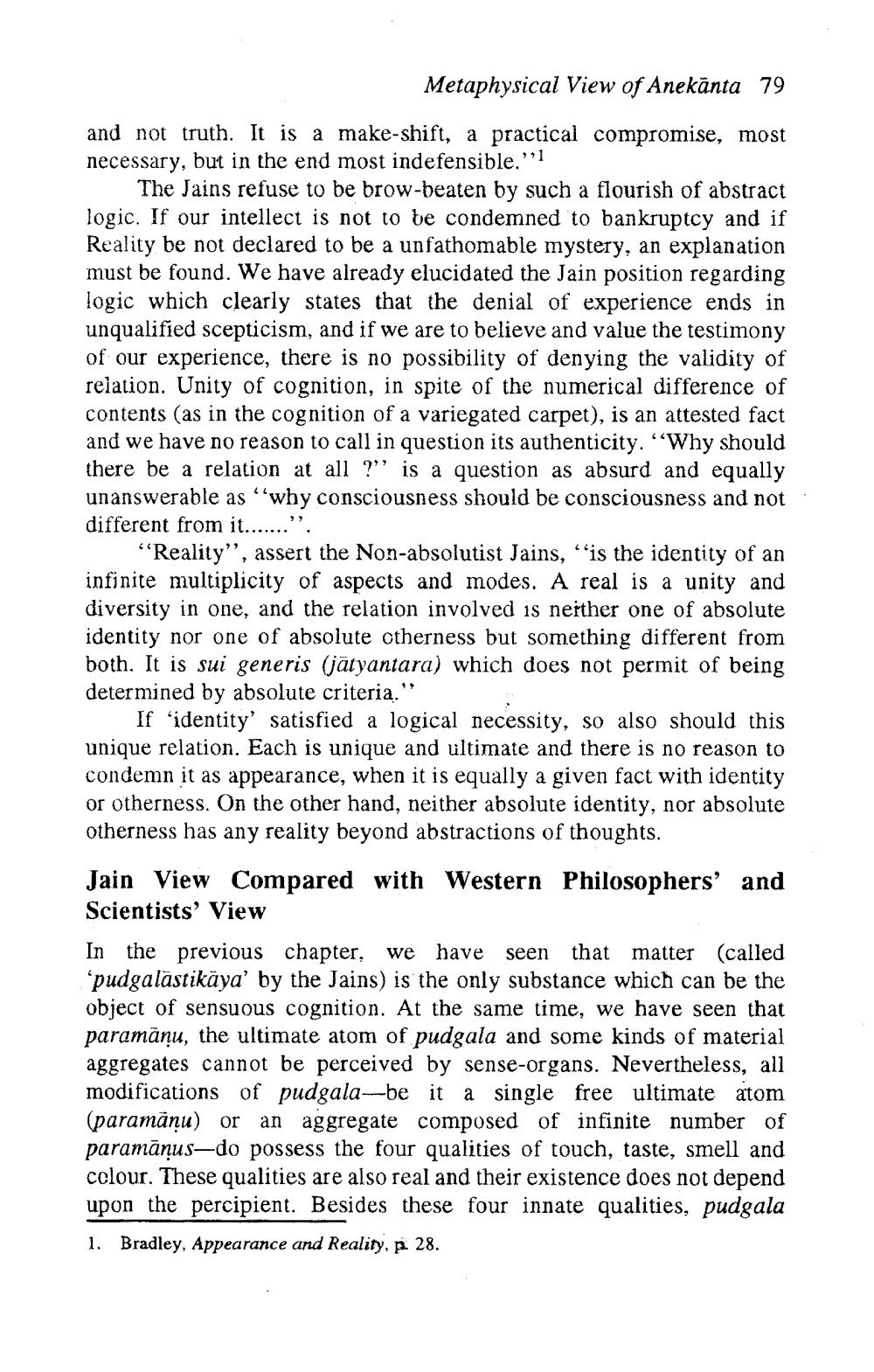________________
Metaphysical View of Anekānta 79 and not truth. It is a make-shift, a practical compromise, most necessary, but in the end most indefensible.”]
The Jains refuse to be brow-beaten by such a flourish of abstract logic. If our intellect is not to be condemned to bankruptcy and if Reality be not declared to be a unfathomable mystery, an explanation must be found. We have already elucidated the Jain position regarding logic which clearly states that the denial of experience ends in unqualified scepticism, and if we are to believe and value the testimony of our experience, there is no possibility of denying the validity of relation. Unity of cognition, in spite of the numerical difference of contents (as in the cognition of a variegated carpet), is an attested fact and we have no reason to call in question its authenticity. “Why should there be a relation at all ?'' is a question as absurd and equally unanswerable as "why consciousness should be consciousness and not different from it.......".
“Reality”, assert the Non-absolutist Jains, “is the identity of an infinite multiplicity of aspects and modes. A real is a unity and diversity in one, and the relation involved is neither one of absolute identity nor one of absolute ctherness but something different from both. It is sui generis (jatyantara) which does not permit of being determined by absolute criteria."
If 'identity' satisfied a logical necessity, so also should this unique relation. Each is unique and ultimate and there is no reason to condemn it as appearance, when it is equally a given fact with identity or otherness. On the other hand, neither absolute identity, nor absolute otherness has any reality beyond abstractions of thoughts. Jain View Compared with Western Philosophers' and Scientists' View In the previous chapter, we have seen that matter (called
pudgalāstikäya' by the Jains) is the only substance which can be the object of sensuous cognition. At the same time, we have seen that paramānu, the ultimate atom of pudgala and some kinds of material aggregates cannot be perceived by sense-organs. Nevertheless, all modifications of pudgala-be it a single free ultimate atom (paramānu) or an aggregate composed of infinite number of paramānus-do possess the four qualities of touch, taste, smell and colour. These qualities are also real and their existence does not depend upon the percipient. Besides these four innate qualities, pudgala 1. Bradley, Appearance and Reality, p. 28.




